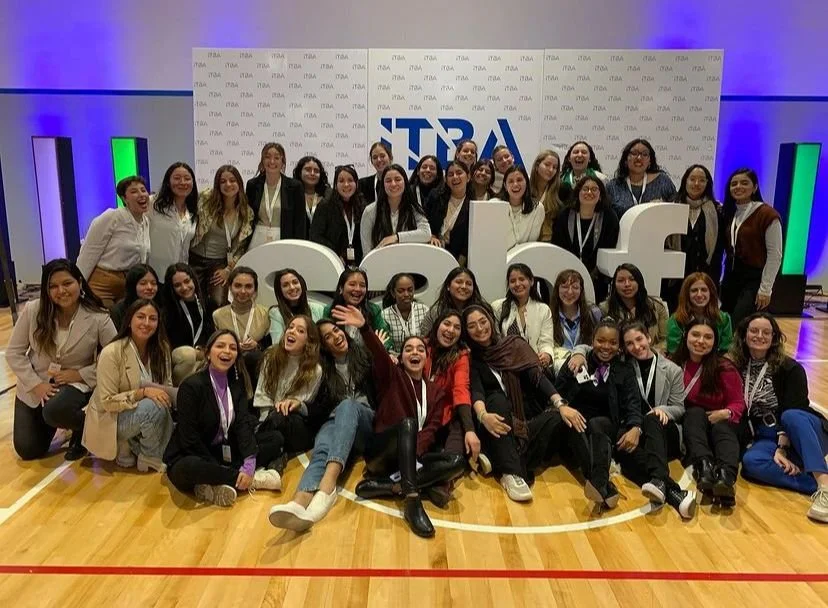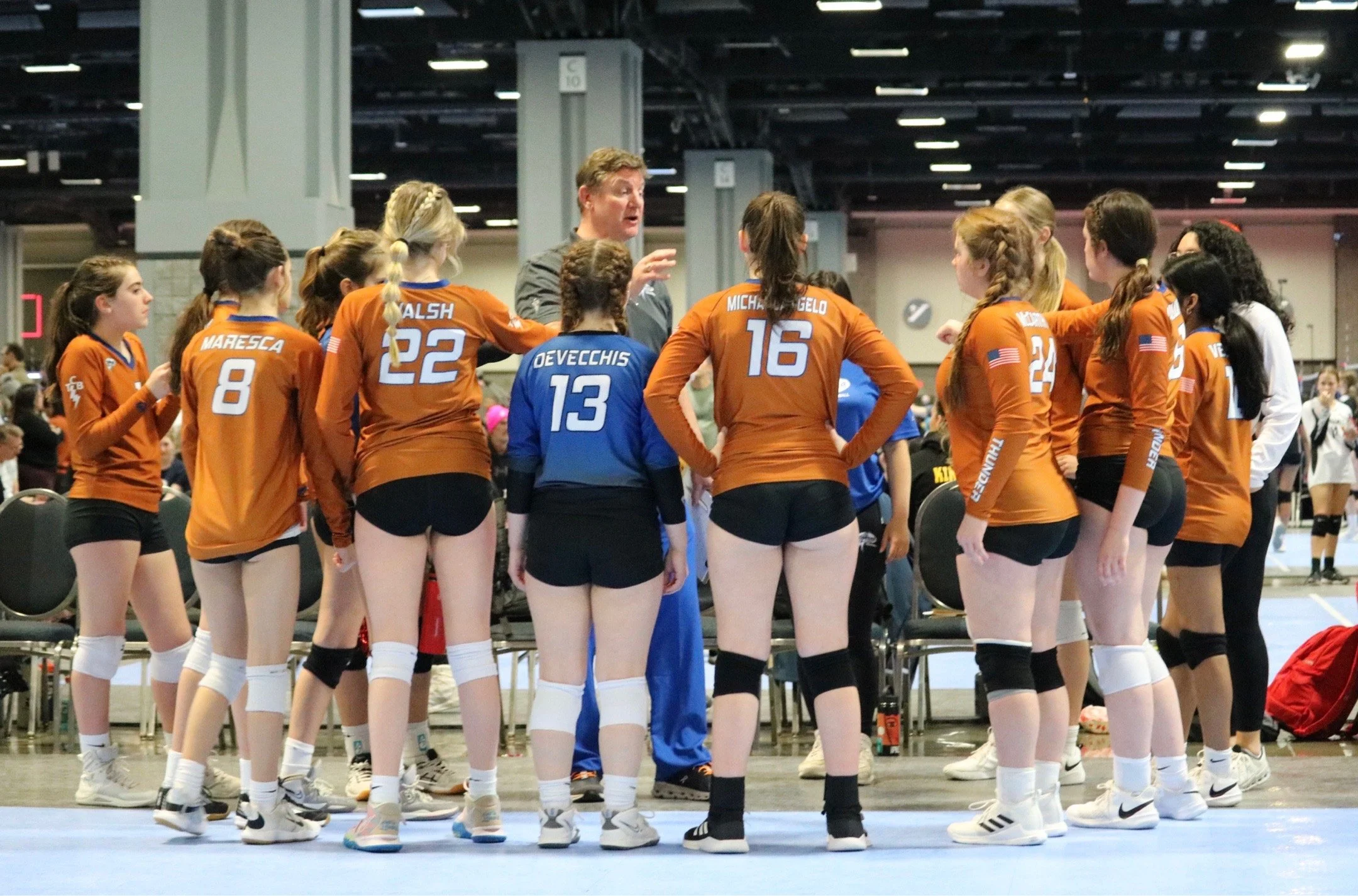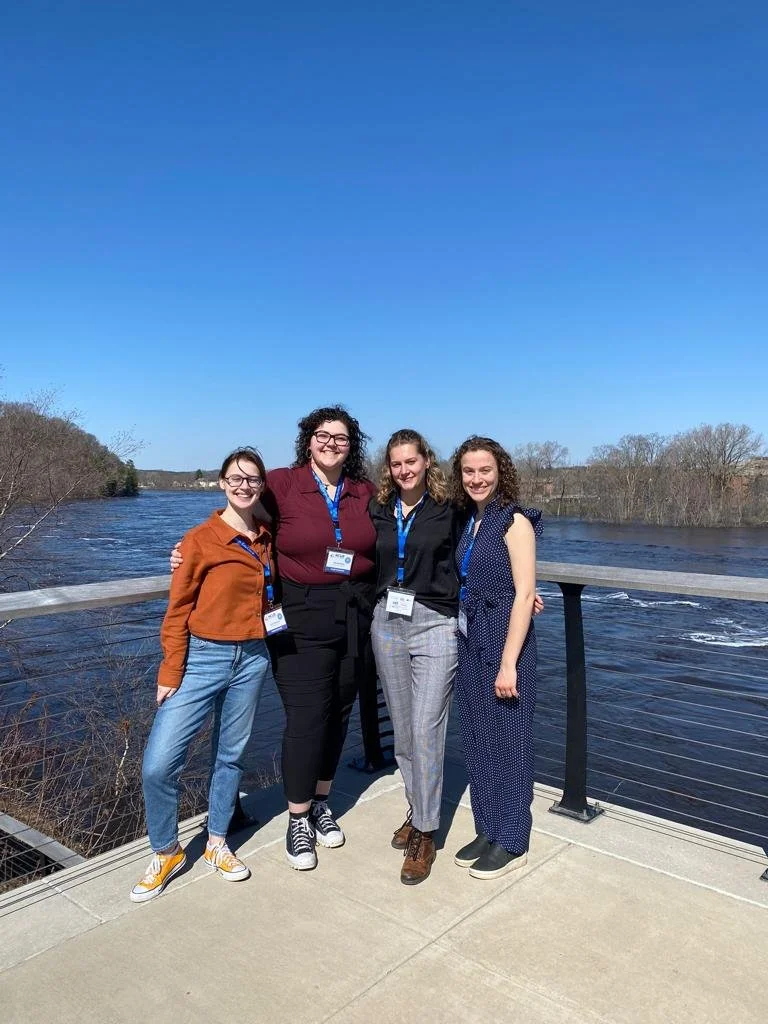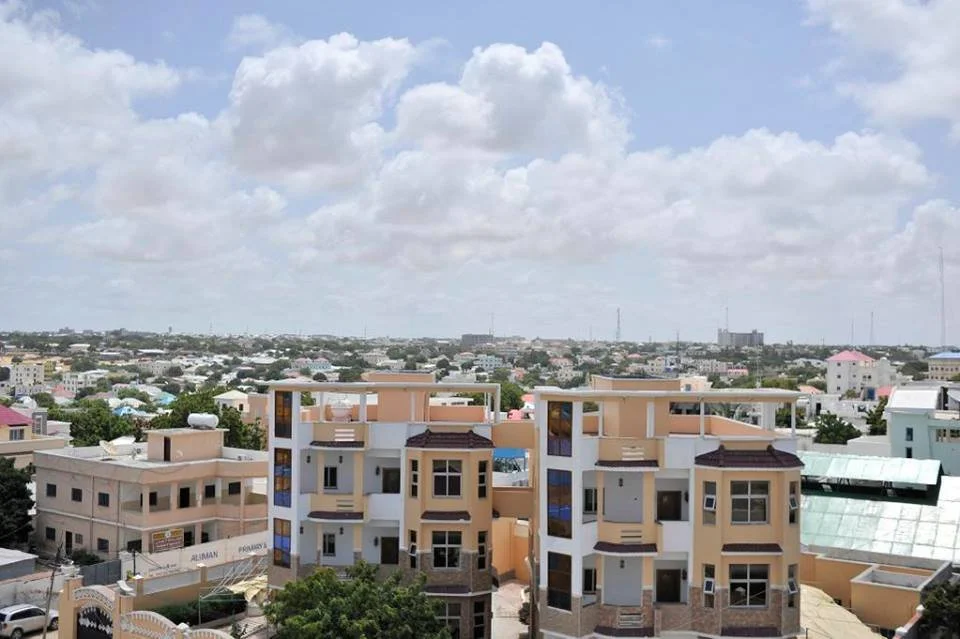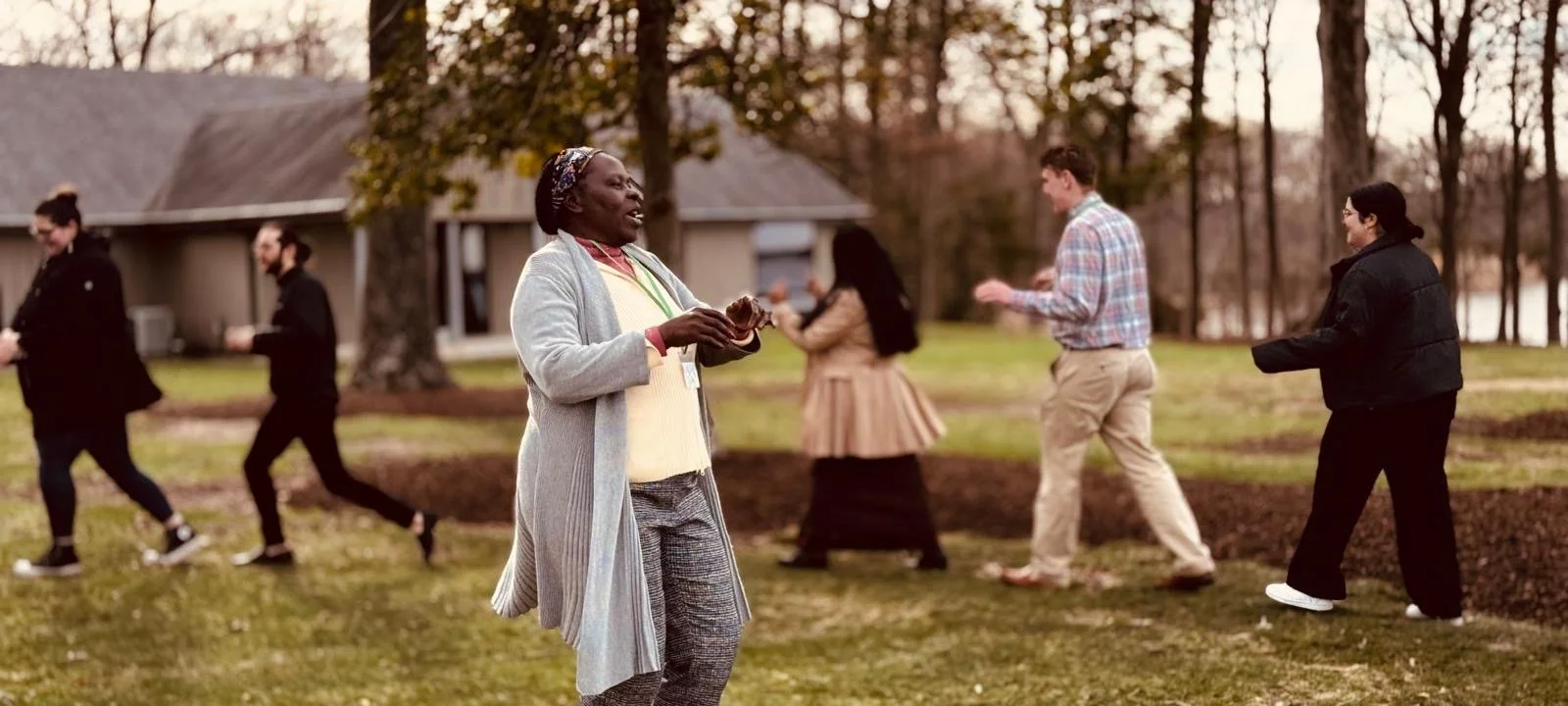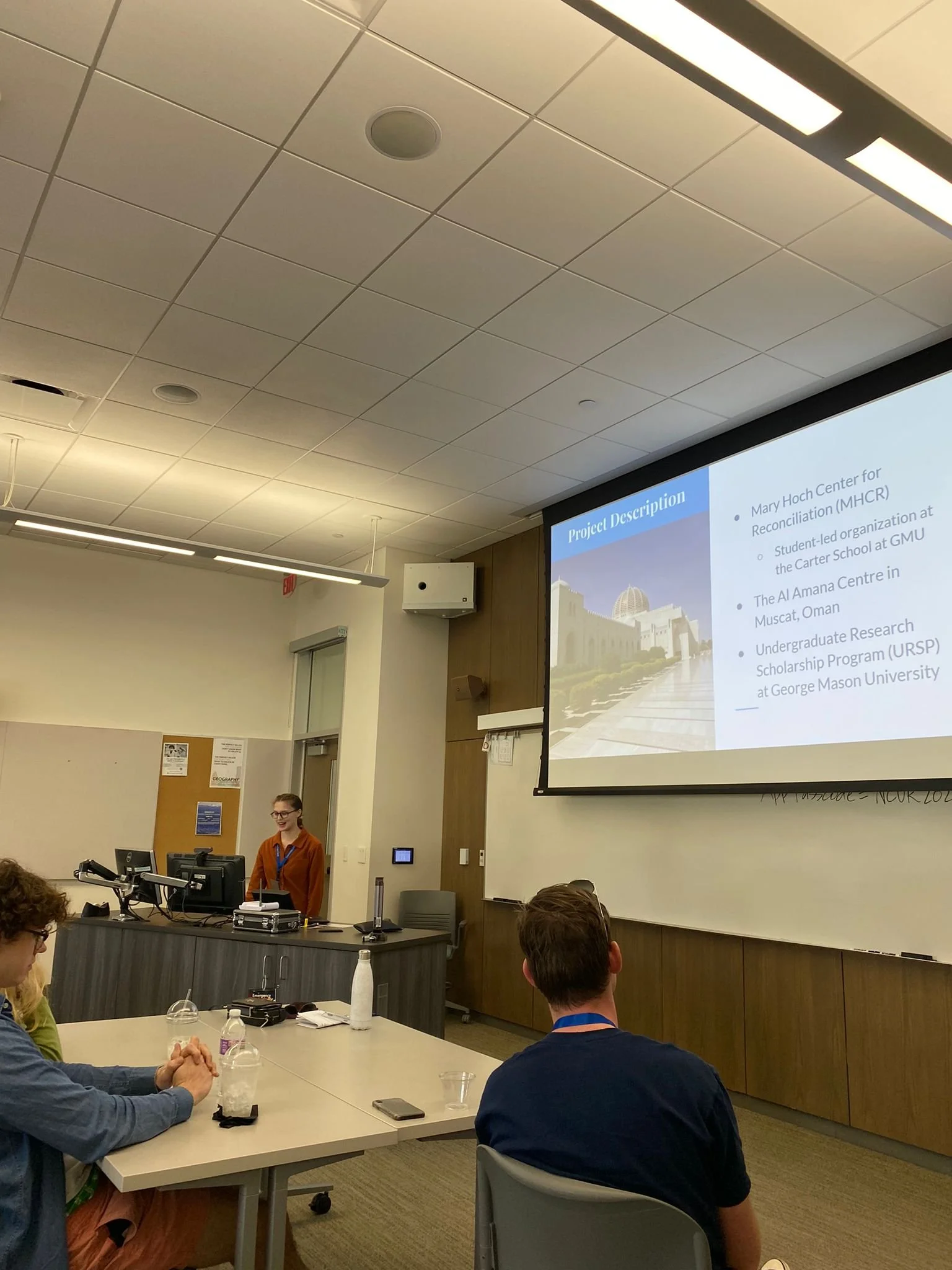By: Dr. Nicholas R. Sherwood
Session led by Dr. Tecla Namachanja Wanjala at the Point of View
This spring, the Mary Hoch Center for Reconciliation (MHCR) hosted its inaugural Insider Reconciliation Summit at George Mason University’s Point of View (PoV) Retreat Center. The gathering brought together over 70 participants from across the globe—scholars, peacebuilders, insider-reconcilers, mental health practitioners, and students—for two days of dialogue, research sharing, and co-creation. Our Summit marked a significant milestone for MHCR and the broader field of peacebuilding, centering Insider-Reconcilers not only as practitioners but as visionaries in the future of reconciliation.
Insider-reconcilers are individuals deeply embedded in their communities who work to foster healing and reconciliation during and after conflict. Often survivors or witnesses of violence themselves, these individuals hold the trust of different sides and act as bridges in contexts fractured by violence. While usually more effective than outsider-peacebuilders, they remain under-supported by many peacebuilding institutions and are at risk of burnout and insufficient support in their work and lives. Our Summit was an intentional step toward changing that dynamic, recognizing the value of these practitioners and exploring how research, policy, and practice can better support their work and well-being.
Centering the Insider Experience
Opening the event, Dr. Alpaslan Özerdem, Dean of the Carter School, underscored the significance of MHCR’s role. “This event matters because it affirms that peacebuilders are not alone. MHCR's work—from supporting insider-reconcilers to shaping policy—will define peacebuilding in the years ahead.” His remarks reflected the deep institutional commitment to reconciliation not as an abstract ideal, but as a lived and evolving practice.
GMU Professor of Practice Antti Pentikäinen, Director of MHCR and one of the Summit’s architects, emphasized that insider-reconcilers represent the future of peace mediation. “We are not here simply to talk about reconciliation. We are here to shape what it becomes. This Summit is our chance to reimagine the field—with the people working at its center.”
Participants represented a broad spectrum of experience, including individuals who have worked on the front lines of civil war, post-genocide recovery, and Indigenous peacebuilding. The diversity of voices, experiences, and regional contexts created an atmosphere of mutual respect and learning. This was not a conventional academic conference, but a space designed to feel human, relational, and inclusive. Meals were shared, stories exchanged, and silences honored.
From Research to Action: Findings and Reflections
A core objective of the Summit was to share findings from MHCR’s five-year participatory action research project on insider reconciliation. Dr. Nick Sherwood, MHCR’s Mental Health and Psychosocial Support (MHPSS) Expert Advisor and director of MHCR’s Insider-Reconcilers Research Study, presented the results of this study that features 42 interviews with insider-reconcilers across 19 countries and five continents. MHCR’s Insider-Reconcilers Research Study seeks to understand what motivates and sustains individuals working in their communities to promote peace during and in the aftermath of conflict.
The study revealed three defining characteristics of insider reconcilers:
Insider-reconcilers’ work is deeply personal. Many have experienced loss, displacement, or trauma firsthand. Their commitment to reconciliation arises not from theory or training alone but from the desire to break cycles of violence for future generations. As one participant shared, “Trying to deliver for my children a system that is not perfect, but one where we don’t kill each other, is what keeps me going.”
They are deeply embedded in the conflict landscape. Unlike outsider-interventors, insider-reconcilers live in the communities they serve. They navigate political tensions, social pressures, and personal risks daily. This embeddedness gives them credibility but also increases their emotional exposure.
They place immense value on relationships and storytelling. Many use personal narratives, intergenerational dialogue, or cultural ceremonies to rebuild fractured communities. Though often overlooked by formal peace structures, these processes restore trust and cohesion in post-conflict societies.
Dr. Sherwood highlighted that insider-reconcilers often do not fit into existing policy frameworks or organizational structures. Their work is too relational, too local, too intimate. Yet, they frequently hold the most fragile threads of peace. Moving forward, the challenge is building systems that value and support insider-led work without co-opting or professionalizing it out of existence.
Well-Being Is Not Optional; Well-Being Is Foundational
A central theme throughout the Summit was the psychological toll of engaging in reconciliation work. Participants repeatedly described burnout, isolation, and the difficulty of seeking support. In one powerful session, Dr. Al Fuertes led a roundtable discussion on peacebuilders' well-being. He noted the centrality of compassion fatigue—burnout caused by overwork and the emotional absorption of others’ suffering. He argued that peacebuilders often serve without receiving care themselves. They hold space for others while neglecting their wounds. They become the therapists, counselors, and mediators without being asked how they are doing.
Participants were invited to reflect on their well-being. Mike Niconchuk, a neuroscientist and peacebuilding practitioner, suggested reframing the term “well-being” as “safety”—a word that resonates more clearly with trauma survivors. Others spoke about the stigma of vulnerability in activist circles or the lack of institutional support when they face threats or persecution. Several described fleeing their countries, being targeted online, or losing jobs because of their peacebuilding work.
For many, this session was the most personal. Participants shared stories of breaking down in classrooms, crying in front of students, and feeling unsafe in their own homes. They spoke of moments when they almost gave up and what pulled them back. The message was clear: Reconciliation cannot thrive if reconcilers are not cared for.
Bridging Peacebuilding and Mental Health
Another key area of exploration was how to integrate mental health and psychosocial support (MHPSS) into peacebuilding. A dedicated panel explored the overlap between individual trauma, community healing, and structural violence. Speakers included Brandon Hamber, Frederike Bünker, and Fanie du Toit.
Panelists emphasized that trauma is both personal and collective. Without healing, it festers and reemerges in cycles of violence. Communities that cannot process grief or rebuild trust remain stuck in patterns of retaliation and suspicion. Yet peacebuilding initiatives often focus on political settlements, ignoring the emotional and psychological wounds left behind.
Participants called for a reimagining of how peacebuilding and mental health interact. They noted that psychological support is informal in many parts of the world, found in rituals, storytelling, food, and community. The Western model of diagnosis and treatment does not always apply. Instead of imposing external frameworks, practitioners must listen to what already exists. They must honor local traditions, support grassroots healers, and expand the definition of care.
One compelling insight came from MHCR Associate Director and Co-Chair of the Eastern Africa MHPSS Network, Rowda Olad. Rowda led a MHPSS breakout session wherein she shared her experiences and insights on leading the institutionalization of non-clinical, culturally grounded MHPSS efforts, especially in Somalia. “There is no word for ‘mental illness’ in Somali,” she said. “But there is so much pain. We need to create a language that fits and heals. We need to stop gatekeeping healing.” She further shared her work on integrating MHPSS into peacebuilding while highlighting a critical gap in the inclusion of MHPSS within peacebuilding processes. With the support of MHCR and the Carter School, she aims to develop evidence-based approaches for incorporating MHPSS interventions into peacebuilding efforts.
Participatory Research: Centering Local Wisdom
A defining feature of MHCR’s work—and this Summit—is our commitment to participatory action research (PAR). Rather than conducting research on communities, MHCR involves them as co-researchers and co-authors. This approach was evident in presentations from MHCR researchers like Bina Nepram, Brooks Munns, and Avery Butler, who shared findings and their own personal journeys.
MHCR Insider-Reconciler Fellow, Bina Nepram, spoke about growing up in Manipur, India, under military law. Her research began not in a lab but in her neighborhood, asking why her community was filled with soldiers. She traced connections between biodiversity, conflict zones, and the exploitation of Indigenous lands. Her conclusion: Many modern conflicts are driven by resource extraction, and the people most affected are often the least included in peace talks. Brooks shared how his background in community health research changed how he approached reconciliation research. Initially unfamiliar with healing-centered language, he immersed himself in MHCR’s methodology to understand how trauma, resilience, and spirituality intersect with peacebuilding.
These voices reminded participants that insider reconciliation is not just a topic to study. It is a way of living, a way of knowing. It cannot be understood from the outside—it must be experienced, respected, and co-created.
Antti Pentikäinen: Leadership as Love
In his closing remarks, Antti Pentikäinen invited the room to reflect on the knowledge shared and the relationships formed. He spoke of love as a radical practice in peace work, not sentimental but strategic. “Love is viral,” he said. “It can’t be contained. It spreads from person to person instantly. Reconciliation is not about winning a debate. It’s about inviting people into transformation.”
He previewed his ongoing book project, which explores how nations can heal by reckoning with their histories and embracing community-based restoration. He urged participants to move away from narratives of struggle and instead embrace invitation, joy, and belonging. “You are remembered by how you make others feel,” he said. “Let’s be remembered as those who made people feel safe, seen, and supported.”
Looking Ahead: What’s Next for MHCR?
The Summit closed with a co-creation session focused on the next phase of MHCR’s work. Participants brainstormed questions for future research, discussed policy implications, and offered strategies to strengthen insider support networks.
MHCR’s plans include:
Sharing the findings of the published comprehensive Summit report and media articles to more broadly
Launching Phase II of the Insider-Reconciler Research Study with new research questions and community partners
Generating new research focusing on MHPSS in specific conflict contexts and regional areas
Expanding the Insider-Mediator Community of Practice (IMCoP), with increased opportunities for peer learning
Hosting future summits focused on specific conflict contexts or thematic areas
Developing training materials and policy briefs to support institutional understanding of insider reconciliation, MHPSS, and practitioner-engaged participatory research
Final Reflections: Hope in the Little Things
Perhaps the Summit’s most lasting impression was the atmosphere it created—a space of safety, solidarity, and mutual care. In one of the final sessions, a student reflected, “We don’t find hope in the headlines. We find it in the small things—a warm meal, a story shared, a friend who checks in.” That spirit carried through every session. Participants broke bread, laughed, and held space for one another’s difficulties. They shared strategies and theories, as well as dreams and doubts.
Our Summit was more than an event—it was a declaration that insider-reconcilers matter, that healing is necessary, and that our field can and will pick up the gauntlet thrown down during our world’s tumultuous present moment.
